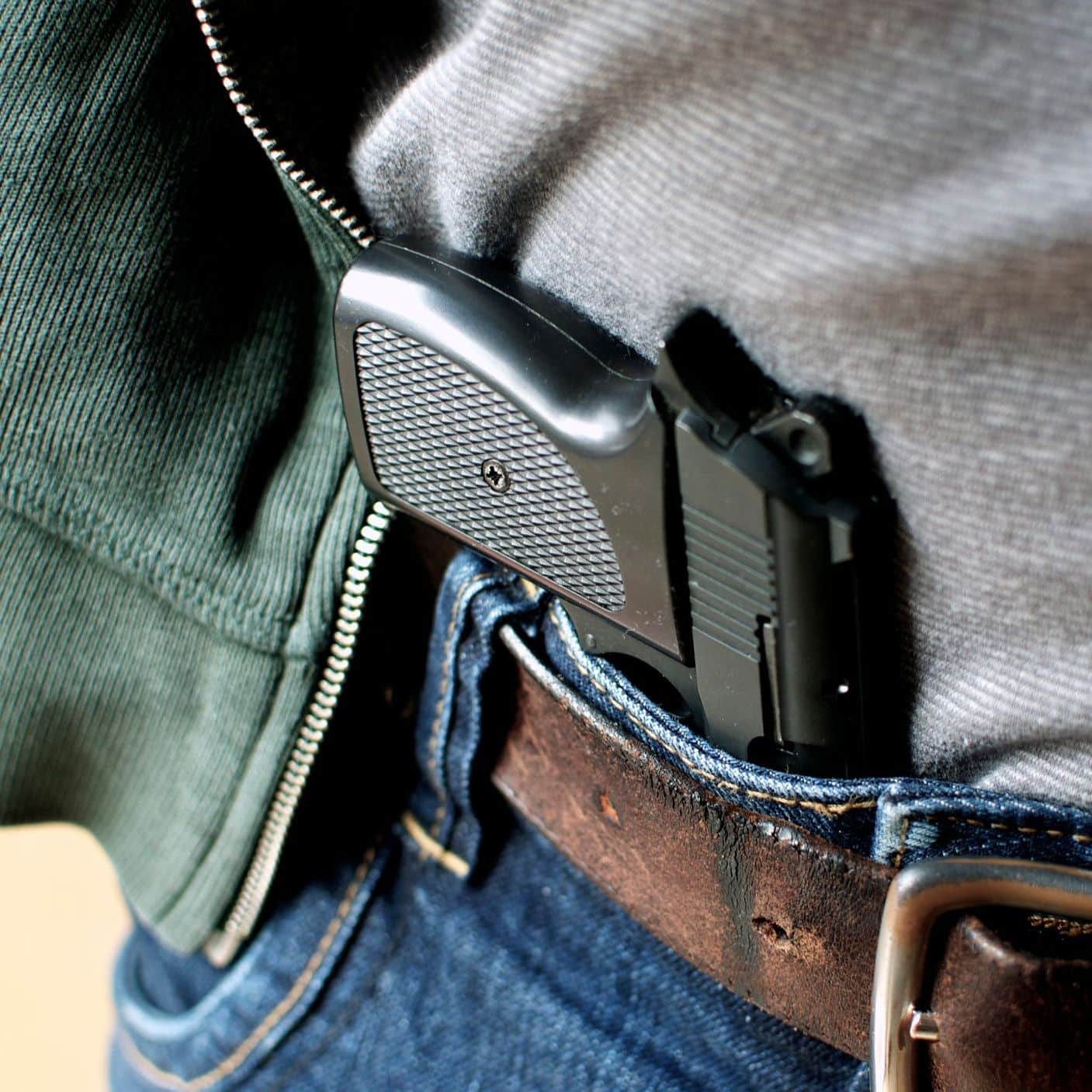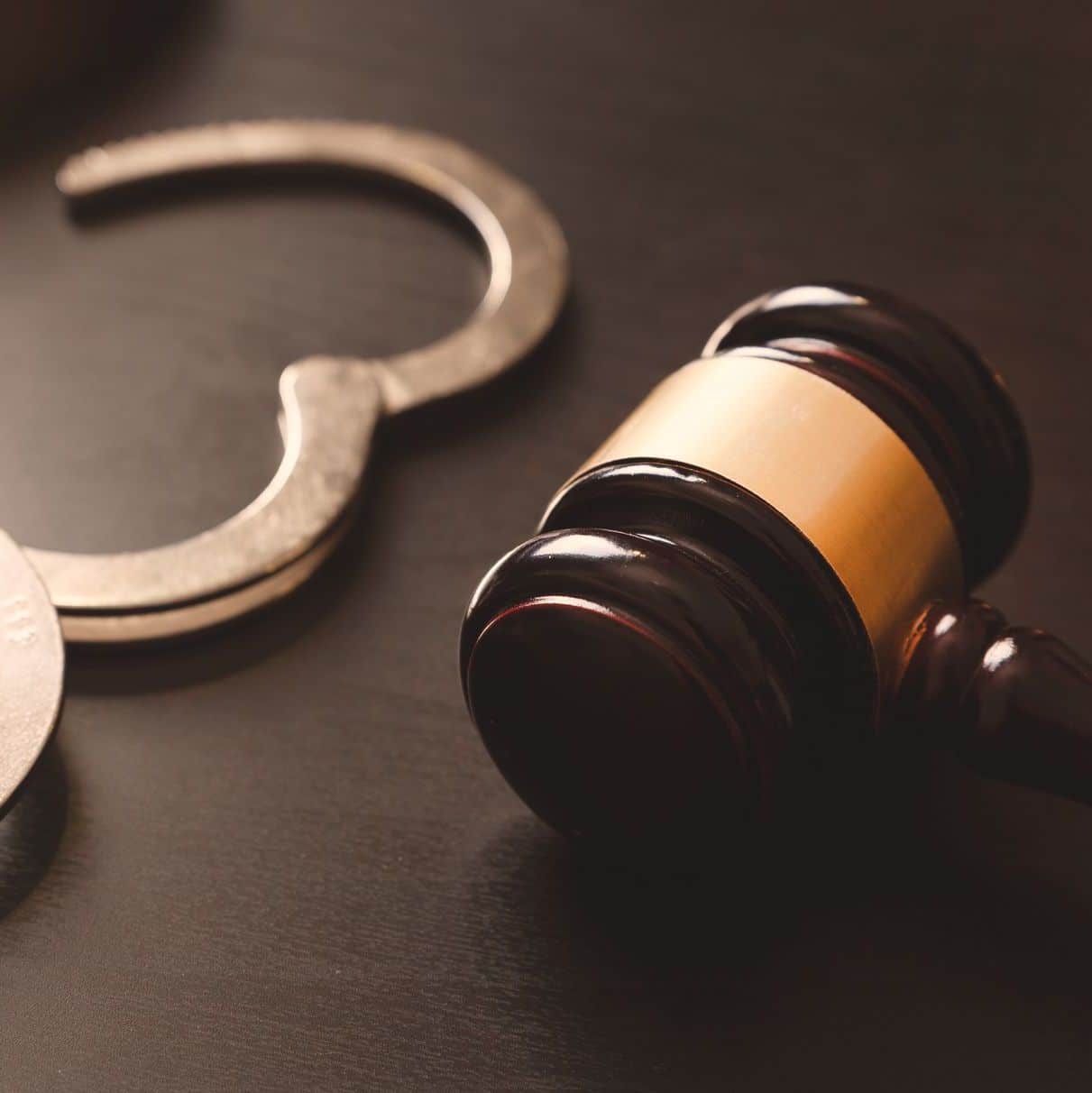Carrying a Loaded Weapon in a Vehicle PC 25850
The State of California has some of the most restrictive gun laws in the U.S. Even registered owners of legally acquired guns can find themselves in hot water if they fail to adhere to the state’s strict carrying restrictions, especially as they apply to transportation.
If you are caught transporting a loaded firearm in a vehicle, you may incur a range of criminal penalties under California Penal Code 25850. Depending on the specific details of the incident and your criminal record, you may even face felony charges and be sentenced to prison. An experienced criminal defense lawyer can help ensure that’s not your fate.
This article will explain everything you need to know about carrying a loaded weapon in a vehicle under PC 25850, including potential penalties, common legal defenses, and the importance of partnering with a dedicated criminal defense attorney.
If you’ve been charged with a gun-related crime, your future is on the line. The best way to avoid a criminal conviction for firearm charges is by contacting a reputable defense law firm right away. Schedule a consultation with Gressley & Donaldson to get started.

The Legal Definition of Carrying a Loaded Firearm PC 25850
According to Penal Code 25850, carrying a loaded firearm in most public places in California is a crime. Any firearm that contains unexpended cartridges in either the chamber or magazine is considered a loaded firearm according to California law. This includes magazines, drums, belts, bandoliers, shell holders, and similar devices.
Even if your firearm is broken, disabled, or otherwise inoperable, you may still face criminal charges for attaching live ammunition to it and carrying it in public, whether on your person or in a vehicle. Finally, PC 25850 gives peace officers the authority to take and examine your firearm to determine whether it is loaded. If you refuse to allow an officer to examine your firearm, you may face the same penalties for a normal offense under PC 25850.
When Is it a Crime to Carry a Loaded Firearm in California?
It is a crime to carry a loaded firearm in California whenever you are in a public space, including a public street. Since vehicles operate on public streets, it is inherently illegal to carry a loaded firearm in a car. As the list of prohibited areas is so exhaustive in California, It is easier to list the areas where carrying a loaded firearm is legal. These include your place of residence, your business, or someone else’s private property (assuming you have permission to be there).
One of the most notable exceptions is hunting. As long as you are outside of city limits and within an area where there are no firearm restrictions, it is legal to carry a loaded firearm while hunting in California. In some situations, you may also carry a firearm while fishing, as well at a licensed shooting range.
There is an exception to this law. If you have a Concealed Weapons Permit (CCW), you can legally carry a firearm in public, and it may be impossible to charge you with an offense under PC 25850. You are also allowed to carry a loaded firearm with a valid CCW. A “modified” CCW could allow you to carry a loaded, exposed firearm rather than having it hidden from view.
However, it’s important to note that in 2024, laws went into effect in California that ban gun owners from carrying concealed firearms in a new set of locations, including public parks, playgrounds, churches, banks, and zoos.
What Are the Legal Defenses to PC 25850?
If you have been accused of crimes under PC 25850, you’ll need to mount an aggressive defense strategy to avoid conviction. Luckily, several legal defenses can effectively prove your innocence, a few of which we discuss below.
No Knowledge of Carrying a Firearm
Intent is an important requirement for a successful conviction under PC 25850. If you had no knowledge of the firearm or you didn’t intend to carry it in your vehicle, you cannot be convicted. For example, someone else might have left their firearm in your vehicle. Alternatively, a passenger in your vehicle may have taken your weapon out of its locked container and left it in the open without your knowledge.
The Firearm Was Not Loaded
When inspecting your firearm, police officers may have incorrectly assumed it was loaded. For example, an officer might have seen the expended cartridge in your gun’s firing chamber and assumed the empty shell was a live round. In this case, you couldn’t be charged with carrying a loaded gun because empty shells are not classified as live ammunition under California law.
You Are Exempt from the Law
Another obvious defense is to show that you are exempt from prohibitions on carrying a loaded firearm in public. This may apply if you have a valid CCW or a modified CCW. There are other potential exemptions, such as self-defense against an active threat from criminals in public.
Illegal Search and Seizure
You may be able to argue that law enforcement officers violated your Fourth Amendment rights when they searched your vehicle. The Fourth Amendment protects all United States citizens from unreasonable searches and seizures by the government. Without probable cause, police officers cannot legally search your vehicle. However, PC 25850 highlights very specific instances in which police may make arrests without search warrants, including prior violations of PC 25850.
What Are the Penalties for Penal Code 25850?
For a normal offense under Penal Code 25850, the penalty for carrying a loaded weapon in a vehicle is up to one year in jail, a fine of up to $1,000, or both. This is a misdemeanor offense unless certain aggravating factors exist.
Wobbler Offenses
When a crime can be classified as either a misdemeanor or a felony, it is considered a “wobbler” offense. Carrying a loaded weapon is a wobbler offense because it is typically charged as a misdemeanor but is sometimes charged as a felony with the presence of certain aggravating factors.
A range of firearm offenses under PC 25850 can be punishable under Section 1170, which allows convicted felons to serve sentences in jails rather than prisons. So while these offenses will be prosecuted as felonies, they may lead to less incarceration in jails. Under Section 1170, aggravating factors associated with PC 25850 include prior convictions for drug crimes or crimes against a person or property, and not being the owner of the handgun found in your possession.
Straight Felonies
If you carry a loaded firearm in a vehicle under certain circumstances, you will face straight felonies. Violations under PC 25850 may result in felony charges if you have a previous felony conviction; if the firearm was stolen; if you are part of a criminal street gang; or if you are prohibited from possessing firearms.
The Three-Month Mandatory Minimum
In some cases, you will face a mandatory, three-month jail sentence for carrying a loaded firearm in a vehicle. This applies if you have been previously convicted under Section 23515, which involves violent acts with firearms. A three-month mandatory minimum county jail sentence also applies if you were previously convicted under Section 16580, which also pertains to violent or dangerous acts with weapons.
If you’re facing charges under PC 25850, you may be wondering: Can I get a conviction expunged? It may be possible to have a PC 25850 conviction or to have a felony reduced to a misdemeanor, but there’s no guarantee it will restore your gun rights. Avoiding conviction in the first place is typically much easier than pursuing a possible expungement down the line.

Further Consequences of a PC 25850 Violation
Alongside incarceration, fines, probation, and community service, there may be other repercussions for a conviction under PC 25850.
A conviction under this section could lead to serious immigration consequences. Carrying a loaded firearm in public may be a “crime of moral turpitude,” and a conviction may lead to deportation. Those convicted of this offense may lose the right to re-enter the nation.
Additionally, a conviction under PC 25850 may result in the loss of your Second Amendment rights in California. In other words, you will no longer have the ability to legally purchase, possess, or use a firearm.
Frequently Asked Questions
Still have questions about PC 25850 charges? We’ve got answers. Read through the discussions of our most frequently asked questions below.
• How can you legally carry a gun in your car in California?
You are allowed to transport a firearm in a vehicle under specific circumstances in California, and there are additional restrictions for handguns. First, you must be over the age of 18 to transport a handgun in a vehicle, and you must place the handgun in a locked container or the vehicle’s locked trunk. If you remove the handgun from the vehicle, you must transport it on your person and within a locked container. This locked container must be fully closed and secured with a padlock, key lock, combination lock, or similar locking device.
Unloaded shotguns, rifles, and similar “non-concealable” firearms do not require locked containers for vehicular transport. However, they must remain unloaded during transit. Note that this does not apply to “assault weapons,” as these firearms follow a different set of rules. Assault weapons must be carried unloaded and in a locked container, and you can only be transported between specific locations.
• Can I keep a gun in my glove box in California?
For the most part, it is illegal to carry a firearm in a glove box in California. State laws specifically ban carrying handguns in glove boxes, but it is theoretically legal to place an unloaded shotgun or rifle in this compartment (although highly unlikely to work).
• What happens if you get pulled over with a gun in the car in California?
If you get pulled over with a gun in your car in California, the first thing you should do is inform the officers of the firearm’s presence. Next, you should keep your hands in clear view and avoid reaching for the weapon at all costs. Even if you simply intend to show the officers your firearm, touching the weapon could lead to drastic consequences.
If you are legally allowed to transport the firearm and the weapon has been stored properly, you should not experience any legal consequences. But remember: Refusing to allow a police officer to examine your firearm will result in the same consequences as a normal PC 25850 arrest, so it makes sense to facilitate this inspection.
With that being said, it is important to understand that a police officer only has the legal authority to search your vehicle under specific circumstances. If they ask for your consent to search the vehicle, you have every right to refuse, and in most cases, refusal is the most prudent action.
Gressley & Donaldson: Top Criminal Defense Attorneys in California
If you’ve been charged with carrying a loaded weapon in a vehicle, you are in a precarious legal situation. To defend your innocence and retain your Second Amendment rights, you will need to work closely with a trusted criminal defense lawyer. Luckily, you don’t have to look too far to find top-tier representation: Gressley & Donaldson is here to help. Contact us online to get started.
contact us to start building your defense
We understand that being accused of a crime is one of the most challenging times of your life. Rely on us to advocate for your rights and to give you the defense you deserve.
